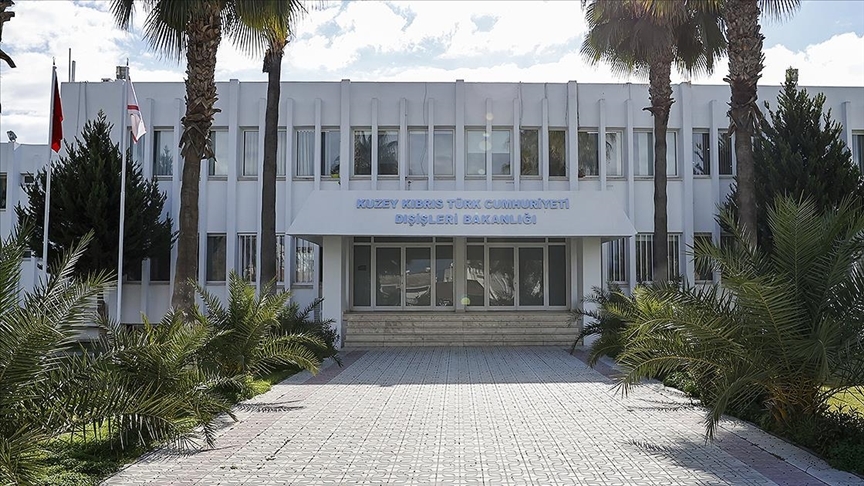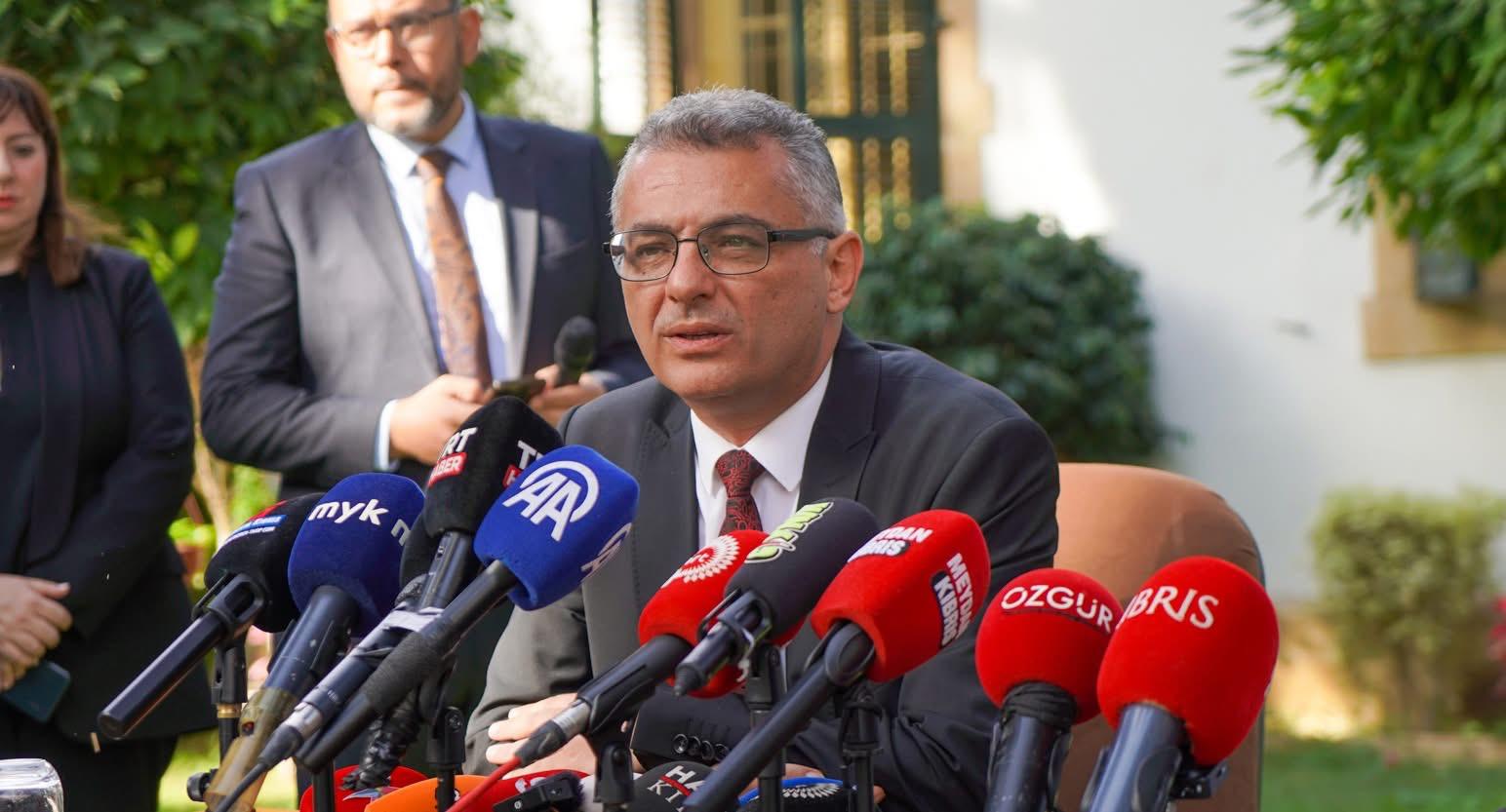Turkish Cypriot leader Tufan Erhurman on Wednesday said the European Commission’s latest annual report on Turkey “demonstrates a disregard for the legitimate rights and interests of the Turkish Cypriot people”.
“It is clear that the approach presented in this report is not in line with this new era, in which the United Nations secretary-general [Antonio Guterres] is expected to intensify his efforts to achieve a just and lasting solution in Cyprus,” he said.
He added that “critical language was used even regarding the fundamental principle upon which all peacekeeping operations worldwide are based: the need for the consent of all relevant parties”, and decried the European Union’s “longstanding reluctance to engage in dialogue with the Turkish Cypriot side on Cyprus -related issues”.
Additionally, he criticised the fact that the EU’s direct trade regulation for the Turkish Cypriots has “failed to be implemented”, and the fact that the report “negatively addresses our observer membership of the Organisation of Turkic States”.
“While the report repeatedly references the UN in the context of Cyprus, it is also striking that it ignores the strong call made by the then-UN secretary-general [Kofi Annan] in 2004 to lift the isolation” of the Turkish Cypriots, he said.
Furthermore, he added, “the report’s inclusion of elements containing factual errors regarding the Varosha issue and its determination of an approach which disregards the equal rights and interests of the Turkish Cypriot people regarding the maritime jurisdiction areas and natural resources surrounding the island constitute an unacceptable situation”.
He was not entirely scathing about the report, however, saying that its “emphasis on the improvement in relations between Turkey and Greece” is “significant”,
“In this context, we reiterate to all concerned that a more just, objective, and constructive approach towards Cyprus on the part of the international community will pave the way for a similar improvement in Cyprus,” he said.

Meanwhile, the north’s ‘foreign ministry’ said the report “once again reveals the EU’s biased, prejudiced, and double-standard approach to the Cyprus issue”.
“By unilaterally admitting the Greek Cypriot side as a member in 2004, the EU lost its neutrality on the Cyprus issue, disrupted the balance on the island, and drifted towards a line which served the political objectives of the Greek Cypriot side. This biased stance has become one of the greatest obstacles to the establishment of a just and equitable compromise between the two sides in Cyprus,” it said.
It added that there are “two distinct, two distinct wills, and two distinct states on the island today”, and that this is “an undeniable fact”.
“As is known, since the EU’s decision-making processes are built on the principle of unanimity, it does not seem possible for it to make a fundamental change in its current stance on the Cyprus issue,” it said.
“It is obvious that it is impossible for the EU, which has been basing its relations with Turkey on the Cyprus issue for years and using this issue as a tool of political pressure, to adopt a fair and impartial attitude towards the Turkish Cypriot people.”
The report had, among other things, criticised that “Turkey continued to advocate for a ‘two-state solution’ in Cyprus, contrary to relevant UN security council resolutions, stating that any process seeking a bizonal, bicommunal federation would not be successful”.
“The EU recognises only the Republic of Cyprus as a subject of international law in accordance with the relevant … resolutions and has stressed that any action to facilitate or assist in any way the international recognition of the Turkish Cypriot secessionist entity severely damages efforts to pave the way for formal settlement talks,” it said.






Click here to change your cookie preferences